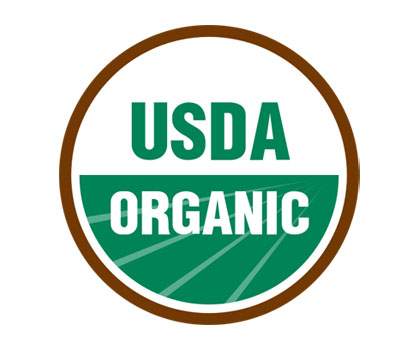Violators of the Organic Foods Production Act (OFPA) face fines of up to $10,000 and can lose certification rights for up to 5 years for making false statements, according to Section 2120 of the OFPA. Violations of the OFPA by persons or corporations include 1) misuse of the label: knowingly selling or labeling a product as organic when it is not, and 2) making false statements: attempts to have an organic label when the person knows (or should have reason to know) that the product does not meet the OFPA requirements (Federal, 2011).


Organic certifying agents can also violate the OFPA. If a certifier falsely or negligently certifies farming or handing operations, when the organization does not meet the requirements of the OFPA, they are subject to losing their accreditation and becoming ineligible for re-certification for 3 years or more (Federal, 2011).
In my opinion, the penalties for organizations violating the OFPA are sufficient, as I feel that organizations should get a “second chance” for the good of the organic industry. If we revoked the rights of every organic violator, the organic and sustainability movement would not be as strong as it has grown to be today. Conversely, revoking the rights of violators would, in turn, support organizations who are meeting the organic regulations, allowing them a well-deserved competitive edge. However, the organic movement is still young and we need to allow as many food production agencies the opportunity to make a change towards the better and this, for the time being, means allowing them a second choice.
This also means that the USDA needs to do their part more honorably. This starts with upholding the penalties of both organizations and certifiers. The Cornucopia Institute, a Wisconsin-based watchdog group, “blasted the USDA for not penalizing Aurora,” a dairy company found to be violating regulations of the OFPA, “even though its government regulators found that the dairy operator had perpetrated consumer fraud, stating that many in the organic industry are resentful of an alleged ‘sweetheart deal’ between Aurora and the USDA (Chua, 2007, para. 4). Aurora Organic Dairy supplies Safeway, Target, Costco, Wal-Mart, Wild Oats, and other supermarkets. They were found to have “willfully” violated “14 provisions of the regulations of Organic Food Production Act, including failing to provide its herd with access to pasture, introducing conventional dairy cows into organic milk product too quickly, not keeping proper records about how its cows were raised, and buying non-organic bedding” (Chua, 2007, para. 2). The USDA gave them a slap on the wrist and settled on an agreement for Aurora to reduce the amount of cows on the farm from 2,200 to 1,200, as well as make other adjustments on the farm.
Aurora is not facing a civil suit from consumers because the company was misleading them into thinking they were drinking organic milk from cows that, according to ads "enjoy a healthy mix of fresh air, plenty of exercise, clean drinking water, and a wholesome, 100 percent organic diet” (Flynn, 2010, para. 10). Additionally, the certifying agent was dismissed from the litigation, receiving none of the penalties set out in Section 2120 of the OFPA (Flynn, 2010).
The penalties for certifying agents are much too lenient. If organic certifiers are granting certification to organizations that are not meeting the organic guidelines of the OFPA, whether it is intentional or not, I feel that they should not be permitted to certify again. The USDA organic labeling system is already under enough scrutiny that mistakes from the USDA certifiers should not be tolerated. There are plenty of individuals looking for jobs that could replace the position and this no-tolerance objective would increase the credibility of the program and USDA overall.
Unfortunately, the words of Barrett are becoming more glaringly accurate: “…organic ‘certification,’ no matter what the rules, will not protect consumers (2007, p. 1).
References
Barrett, S. (2007, September 9). "Organic" Foods: Certification Does Not Protect Consumers. Retrieved from http://www.quackwatch.com/01QuackeryRelatedTopics/organic.html
Chua, J. M. (2007, September 14). Organic Watchdog Group Takes on Aurora Organic Dairy, USDA. Retrieved from http://www.treehugger.com/files/2007/09/cornucopia_usda.php
Federal Organic Foods Product Act (OFPA) of 1990. (2011). §2120 VIOLATIONS OF TITLE. Retrieved from http://www.organicconsumers.org/Organic/ofpa1990.html
Flynn, D. (2010, September 23). Retailers to Face Organic Milk Consumers in Court. Retrieved from http://www.foodsafetynews.com/2010/09/retailers-must-face-organic-milk-consumers-in-court/

No comments:
Post a Comment